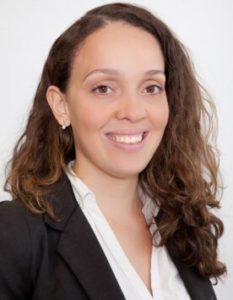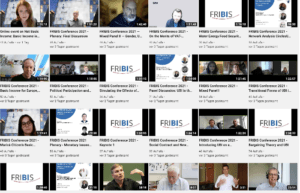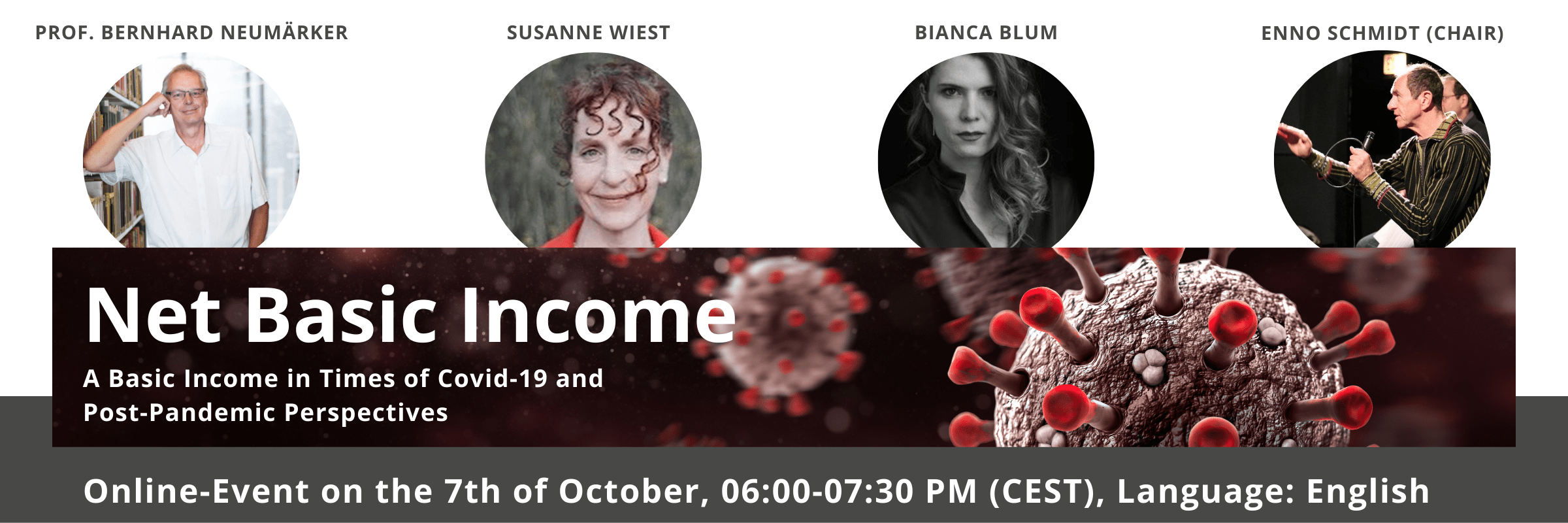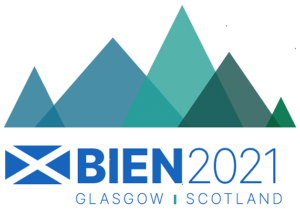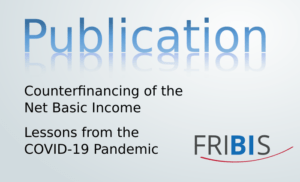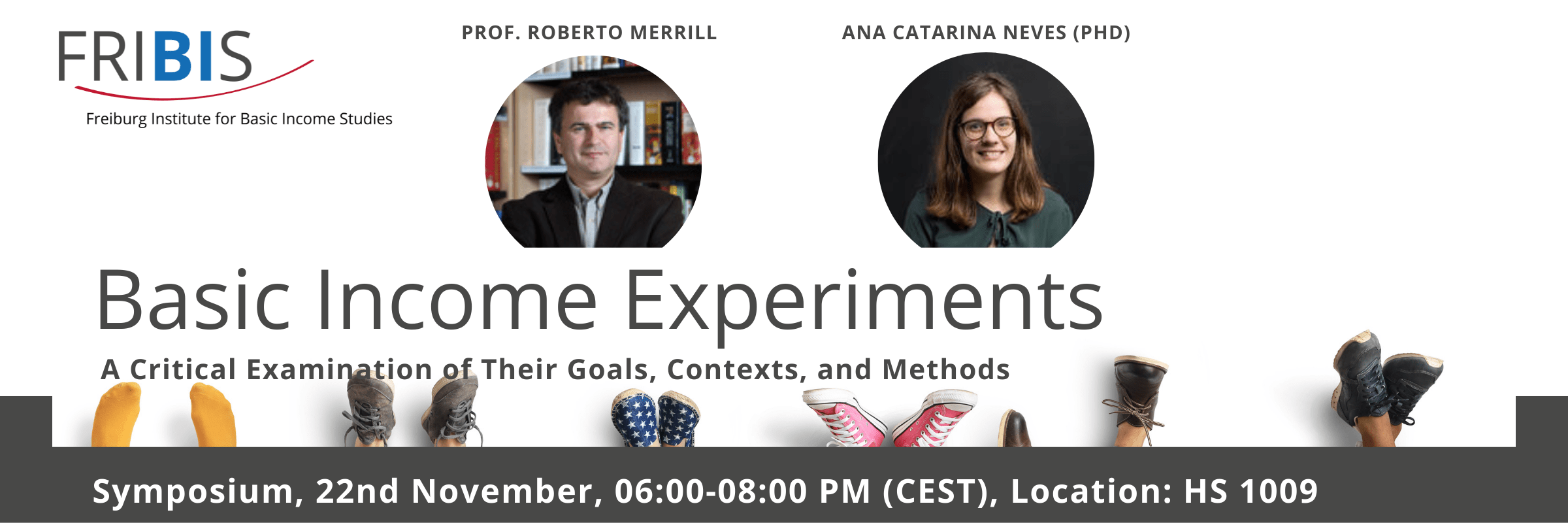
Catarina Neves and Roberto Merrill (Portugal) will be in Freiburg as FRIBIS visiting scholars between 18 and 23 November 2021. They will offer a symposium on basic income experiments on 22 November.
22 November 2021, 6:00-8:00 p.m.:
Basic Income Experiments: A Critical Examination of Their Goals, Contexts, and Methods.
Location: HS 1009, Kollegiengebäude I, Platz der Universität 3, 79098, Freiburg.
Important Update: Due to the recent Covid regulations of the state of Baden-Württemberg, only fully vaccinated or recovered persons are allowed (2G) to participate in the symposium of Roberto Merrill and Catarina Neves. Therefore, unvaccinated or non-recovered persons can no longer attend the event, even with a negative PCR test.
The symposium will be recorded and uploaded on the FRIBIS YouTube channel.
“The focus of the symposium will be their newly published book. The book brings together insights and reflections following a set of interviews conducted with the main stakeholders involved in past, current, and future basic income experiments. It provides an analysis of some of the major elements and factors influencing experiments, as well of some of their most important outputs understood as results of their own experimental design, their sociological and political basis, and the epistemological status of their results.
By pursuing a bottom-up strategy, where the interviews conducted take a pivotal role in the collection and analysis phase of the book, this book gathers key questions relating to policy experiments. Some questions reflected upon include the general idea of why one should engage and implement a basic income experiment, and the paradox consisting in the fact that most basic income experiments fall short of being closely considered ‘pure’ basic income schemes. In facing the question and the paradox head-on, the book assesses questions of experimental design, the political and social context surrounding the policy, and the main results and what can they tell us about basic income.”
Roberto Merrill is Assistant Professor in the Philosophy Department at the University of Minho, where he coordinates the Master of Political Philosophy. He is also a researcher at the Center for Ethics, Politics and Society (CEPS), where he directs the Research Project on Unconditional Basic Income. He has published and edited several books, the most recent one in 2019 on the UBI (Rendimento Básico Incondicional: uma defesa da liberdade).
Catarina Neves is a PhD student at the University of Minho. She focuses on the philosophical justification of the Unconditional Basic Income, namely on the objection of reciprocity. She aims to find out to what extent theoretical concepts can be found in empirical experiments on the UBI. She is also a teaching assistant at the Nova School of Business and Economics (Lisbon, Portugal) where she gives courses on corporate social responsibility and global business challenges.

